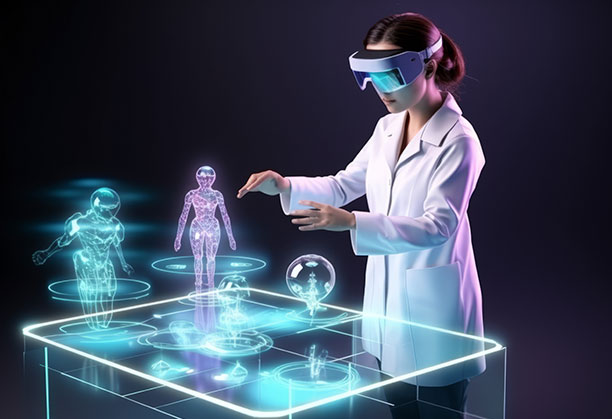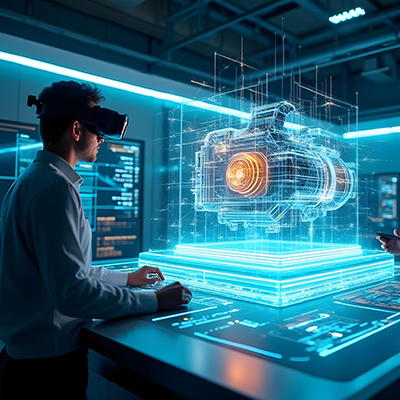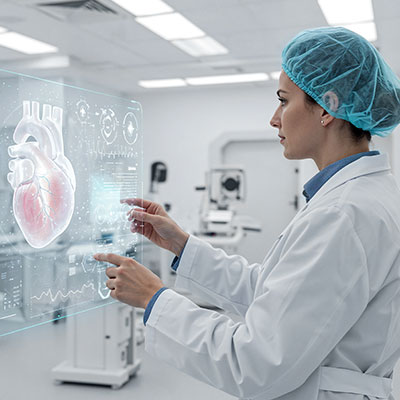Healthcare is an ever-evolving field where precision, skill, and timely decision-making can be the difference between life and death. Traditionally, medical professionals learned primarily through textbooks, lectures, and real-world patient interactions under supervision. However, the complexities of modern medicine and increasing patient safety concerns have driven a paradigm shift. Simulation-based training is now transforming how healthcare professionals learn, practice, and master critical skills offering immersive, safe, and repeatable experiences that prepare them for real-world challenges without real-world risks.
What Is Simulation-Based Training in Healthcare?
Simulation-based training (SBT) refers to the use of advanced technologies and real-life scenarios to replicate medical environments and patient interactions. It enables healthcare professionals, including doctors, nurses, technicians, and medical students, to develop clinical and procedural skills through realistic simulations.
This training often uses a range of tools:
- Mannequins and task trainers for procedural skills
- Virtual Reality (VR) and Augmented Reality (AR) for immersive 3D environments
- Computer-based simulations for diagnostic and decision-making practice
- Mixed Reality (MR) for collaborative and team-based simulations
These experiences can replicate anything from routine tasks like checking vitals to complex procedures like cardiac surgery, allowing learners to practice repeatedly until mastery is achieved.
Why Traditional Training Methods Are No Longer Enough
Although traditional training methods have laid the foundation for clinical education, they present several limitations in today’s healthcare landscape:
- Limited Patient Availability: Opportunities for hands-on training are often restricted due to ethical considerations, limited patient cases, and hospital constraints.
- Risk of Errors: Learning on actual patients can lead to unintended consequences, potentially putting patient safety at risk.
- Inconsistent Learning Experience: Not all trainees are exposed to the same clinical scenarios, leading to unequal preparation.
- Time Pressure: Fast-paced clinical environments often limit the ability to teach and learn thoroughly.
Simulation-based training overcomes these challenges by offering controlled, measurable, and scalable learning environments.
Benefits of Simulation Based Training
1. Risk-Free Learning Environment
The most significant advantage of vr simulation training is its ability to eliminate patient risks during the learning process. Medical professionals can:
- Practice complex procedures multiple times to achieve mastery
- Experience rare clinical scenarios without real-world consequences
- Build confidence through hands-on experience in a controlled setting
- Learn from mistakes without compromising patient well-being
This method works especially well for high-risk operations and emergency scenarios where accuracy is essential.

2. Enhanced Clinical Competence and Decision-Making
Simulation based training accelerates clinical skill development through:
- Immediate, targeted feedback
- Exposure to diverse clinical scenarios
- Development of critical thinking under pressure
- Improvement of psychomotor skills through repetitive practice
Studies repeatedly suggest that, in comparison to traditional training techniques, professionals trained through simulation exhibit superior clinical judgment and improved patient outcomes.
3. Effective Team Communication and Collaboration
Modern healthcare delivery relies heavily on teamwork and effective communication among diverse professionals. Simulation-based VR training in healthcare excels at developing these crucial skills by:
- Creating scenarios that require collaborative problem-solving
- Practicing communication during high-stress situations
- Identifying potential communication breakdowns
- Building mutual understanding across healthcare specialties
These simulations help break down professional silos and foster a collaborative healthcare culture.

4. Standardized and Reproducible Learning Experiences
Unlike variable clinical rotations, simulation based training offers:
- Consistent training scenarios for all learners
- Reproducible conditions ensuring educational equity
- Objective skill assessment
- Targeted practice based on individual performance
This standardization reduces variations in care quality and ensures comprehensive skill development.
5. Preparation for Rare Clinical Events
Some critical medical emergencies occur infrequently but require immediate, skilled intervention when they do happen. Simulation based training allows practitioners to:
- Gain experience with rare but life-threatening situations
- Develop muscle memory for emergency protocols
- Maintain readiness for scenarios they may encounter only once in their career
- Practice teamwork during high-stakes events
This preparation ensures healthcare teams can respond effectively to even the most uncommon clinical emergencies.
6. Improved Patient Outcomes and Safety
Perhaps the most compelling benefit of simulation based training is its direct impact on patient care:
- Reduced medical errors and complications
- Decreased infection rates through improved procedural technique
- Enhanced patient safety through better-prepared healthcare teams
- More efficient care delivery and resource utilization
Studies have demonstrated measurable improvements in patient outcomes following the implementation of simulation-based training programs for healthcare teams.
Applications Across Healthcare Fields
Simulation-based training is not limited to one specialty, it spans across nearly every domain of healthcare:
- Surgery: Surgeons use VR to simulate complex procedures, practice techniques, and refine motor skills before operating on real patients.
- Emergency Medicine: First responders and ER staff train for trauma care, CPR, and life-saving interventions under realistic time constraints.
- Obstetrics and Gynecology: Simulations help manage childbirth complications like breech delivery or postpartum hemorrhage.
- Nursing: Nurses practice patient assessment, medication administration, and wound care using patient simulators.
- Anesthesia and Critical Care: Teams simulate crisis scenarios like cardiac arrest or respiratory failure to improve response strategies.
Experience the Future of Medical Education with Simulation Based Training
How Juego neXR is Transforming Healthcare Training
With cutting-edge extended reality technologies that produce immersive and incredibly lifelike learning environments, we at Juego neXR are transforming healthcare training. Our state-of-the-art technology seamlessly combines mixed reality scenarios with virtual patients, VR-based surgical simulations with haptic input, and AI-driven interactive patient responses that adjust dynamically to learner choices.
Comprehensive training environments that include cloud-based collaboration tools, real-time performance statistics, and previously unheard-of chances for skill development across regional borders are now available to medical practitioners.
We offers medical institutions a scalable, affordable way to improve clinical skills training. It is designed to easily connect with the current healthcare training curriculum.
Conclusion
More than a trend, simulation based training is a fundamental change in how medical professionals are prepared for today’s circumstances. Simulation-based training is proven to increase clinical skills, foster teamwork, and ultimately improve patient outcomes.
Simulation based training will keep developing as technology progresses, introducing fresh ideas to produce even more potent educational opportunities. Healthcare institutions that adopt these advances will be at the forefront of both professional quality and patient safety.
Frequently Asked Questions
Even while initial technological investments can be high, long-term advantages usually exceed expenses. Simulation based training increases the effectiveness of clinical instruction while lowering the need for remediation and error-related problems.
No, simulation based training enhances real-world health care experiences rather than taking their place. It provides a vital link between clinical practice and classroom instruction, enabling skill development in a secure setting.
Modern simulators are extremely sophisticated, with mannequins that can react, breathe, and display intricate physiological processes. Experiences are becoming more realistic and immersive thanks to virtual reality and standardized patient interactions.
All healthcare staff, including doctors, nurses, emergency technicians, and allied health personnel, benefit from simulation based training. It is particularly helpful in high-acuity environments, such as intensive care units and emergency rooms.
Careful preparation, including needs analysis, faculty development, curriculum integration, and continuing evaluation, is necessary for successful implementation.
Revolutionize the future of business with Juego neXR
Related Posts
Share this Article:
Our Offices

India
Bangalore
GR Grand Plaza, 2nd Floor, JP Nagar, 6th Phase, Bangalore – 560 078

KSA
Jeddah
St Idris Square, 4036 Helmi Koutbi, Al Zahra, Jeddah 23425, Saudi Arabia
Follow Us On:
© 2026 Juego neXR. All Rights Reserved.




